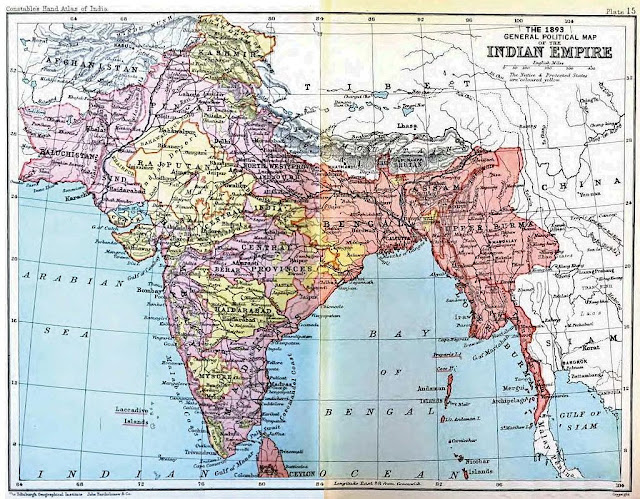Foolish Trends
Trends move the world. It doesn't matter who we are, where we live, what social strata we belong to, or how educated we are, the world, and the society at large, moves in trends. Ideas, social norms, thoughts, products, people, books, political ideologies, and everything else, that everyone seems to be going towards, and sometimes like waves, die out as well.
Trends are real
A woman in Los Angeles tries out a new restaurant because it's ‘fashionable’. The hype is so great that she herself ends up hyping it up. After all, it's considered ‘trendy’ to be seen here.
Similarly, liberal human rights activists suddenly out of the blue, starts to tweet against what is happening in South Sudan because George Clooney started campaigning about what is doing in Darfur. It's on peoples minds and being a human rights activist
A trader in New York buys up Amazon stock. There was a great news article probably published by Amazon’s PR but it has pushed higher and the trader's intuition, as well as his momentum-based model, suggests buying more Amazon. He gets a text from his trader friend from another firm asking if he is buying Amazon, he texts back with a thumbs up
A mother in Pakistan has put her children in swimming classes. They don’t have a swimming pool of their own, but all her friends think children should know how to swim and their son is now taking swimming classes, on top of extra classes, Taekwondo as well as Islamic studies.
El Salvador just made Bitcoin legal tender, it is after all increasing in prices and seems to be the rage. There are rumors that cryptocurrencies will eventually be in every country, so why not make it legal tender?
But Why?
But why are these people doing what they are doing? Is the woman from LA hyping up the restaurant because that's what her friends said or because the food really is great?
The human rights activist is taking a stand for Darfur correctly, but what if a B-list Hollywood actor had tried to campaign for them? Will the activist have noticed? Does that mean the activist only tweets about trending topics to look ‘relevant’
The Amazon stock trader has a great momentum strategy that naturally built up Amazon stock after the PR release, but would he have done that in a firm with a different strategy? Was it easier to make the trade knowing he could brag about it to his friends on the weekend?
As for the mother in Pakistan, does she love his child and want the best, or does she have to make sure she looks like the best mother
Answering these questions is like trying to figure out if the chicken came before or the egg. One really can't answer this question easily as the factors involved are multidimensional, however, what is obvious is that herd mentality, social trends, tribalism, is to a very large extent able to explain why people do what they do, at least along a significant part of the trend graph. The fact that people do it because other people are doing it, means that the decisions being made are more subjective than objective. In fact, oftentimes the decision-maker themselves do not know the actual reason why they are making that decision. They may be making complicated charts and writing reports, but the decision may already have been made.
The woman in LA will justify the expense and quality of the meal to fit in while all the time thinking she knows french cuisine and has great taste. A mother will justify overburdening their children by telling themselves that they want the best for their kids, while what they really want is for herself and her child to not look like failures.
Many people may not know why they are doing what they are doing and even end up simply following the herd and coming up with explanations for doing so later. Not know why they are doing it. This can have serious consequences, for society, for people, for children and so on. The rise of anorexia among the youth, rising depression, credit crises, education inflation and so much more can be at least partly ascribed to this phenomenon. A trend, as cool as it is, can often give you bragging rights but sometimes not even that.
Then What to do?
The answer will differ from person to person. There are people that are as objective as can be, making each decision in a calculating manner, keep all emotions and social influence on the side. But how is this the bed method when choosing what to wear? Fashion trends, as stupid as they may seem at first, become the norm quickly. What about when investing in a stock, surely momentum will be lost returns for some.
Then should we only follow others? Or perhaps other inessentials? People look up to fashionistas and Instagram influencers and follow PR releases from big-name investors when picking stocks. However, this doesn't work all the time either.
I suggest we will have to look for a middle way. Decisions that reflect our values, our intellectual history, our understanding, as well as a proper understanding of the trend, on top of what others are doing. In reality, a decision, based only on a trend, or without the understanding of a trend, is a ‘poor decision’ regardless of the rewards in the short run.
To Conclude
I want to end this piece with a real-life example. In 2005, in a Turkish village, a herd of sheep was grazing through a field. One of the sheep jumped off the cliff accidentally. In true herd fashion, others followed her. The sheep at the back couldn’t tell what was doing on at the front of the herd and kept following them, to their own deaths. 400 sheep died when they jumped over a cliff in what was described as mass suicide. This the worst scenario of a poorly understood trend…..mass suicide
Umair Usman is a Rapid Transformational Therapy Practitioner, a businessperson, and a blogger. You can know more about him at www.thecognitiveconsultants.com. To book a free consultancy session, please fill the form https://tinyurl.com/y6n2vv8w
My blog 'Convincing ourselves' now featured on https://blog.feedspot.com/psychology_blogs/




Comments
Post a Comment